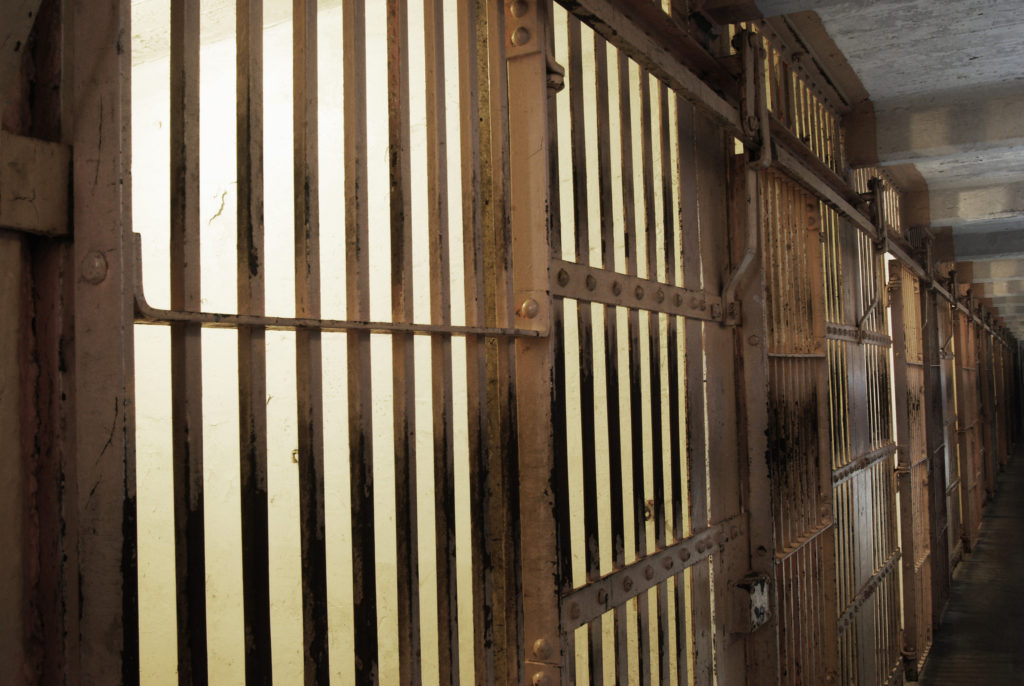The House of Representatives passed the First Step Act last week with overwhelming support. Backed by President Donald Trump, the federal prison reform bill passed by a 360-59 vote, and is aimed at reducing recidivism and allowing inmates to finish their sentences early.
The New Yorker reports that a January poll from the Justice Action Network, a non-profit criminal justice reform group, showed that 87 percent of registered voters support reforms to mandatory minimums. As well, 76 percent strongly support reforming the criminal justice system, and 73 percent believe that the U.S. spends too much money on prisons – rather than programs dedicated to treatment, rehabilitation, and victim’s services.
The bipartisan legislation will seek to establish certain incentives to lessen the chances for an inmate to return to prison following their release by implementing rehabilitation protocols. The federal government will provide the Bureau of Prisons (BOP) with a $50 million annual fund over the next five years to provide inmate programs dedicated to drug treatment, education, and job training.
Following the measure, inmates would be allowed to earn “time credits” for completing the aforementioned programs, which could lead to an inmate serving out the remainder of their sentence at a halfway house or via home confinement, according to a report from UPI.
The bill also dictates other prison reform stipulations that have been wanted by lawmakers and reform advocates. Under the Act, inmates will be housed within 500 miles of their families if possible, ban the shackling of pregnant inmates, and establish the bureau’s provision of feminine hygiene products in female inmates.
Although it easily passed the House, it faced criticism from members of the Senate and criminal justice reform advocates. Some claim that the bill lacks clear measures aimed at lessening the severity of federal sentences to lower the prison population.
During deliberations, Senator Chuck Grassley (R-IA) said, “For that deal to pass the Senate, it must include sentencing reform.”
The Grassley co-sponsored Sentencing Reform and Corrections Act aims to ease prison overpopulation through sentencing reform, and would reduce mandatory minimum sentences, restore judge’s discretion regarding sentencing, and end the “three-strikes” rule. Like the First Step Act, the Senate reform bill has bipartisan political support.
In 2017, the BOP cut funding to 16 halfway houses in order to reduce the overall prison population, according to CNN. Advocates claimed the cutback did not necessarily mean that inmates would go straight from prison to the outside world, but that it could diminish the time they spend getting acclimated to post-prison life in halfway houses, or “residential re-entry centers” in federal prison lingo.
Last week, Senators Kamala Harris (D-CA), Cory Booker (D-NJ), Dick Durbin (D-IL), and Democratic Representatives, John Lewis (GA-5) and Sheila Jackson Lee (TX-18) said that they opposed the First Step Act because it would boost the use of halfway houses and rehabilitation programs run by for-profit companies. Interesting, because it would then add to the number of halfway houses that were originally cut last year, leading to a better avenue for inmates to rejoin society after incarceration.
Democrats, in defiance of the House legislation, called for the passage of the sweeping Senate bill that would enable sentencing reform.
Though, supporters of the First Step Act and House co-sponsor Republican Doug Collins (GA-9) explained that the upper chamber should not refrain from passing their bill to hold out on sentencing reform.
“Those who chose to vote ‘no’ today, my question is this: Is it OK to make progress on many other things, but on this one say no?” Collins added, “Say no to a family who has a family member in prison who could get treatment and get help…is it OK to say no to those folks?”
Collins also argued that although the House bill is a limited reform bill, incremental change is the only political option for sentencing reform, regardless of public opinion.
“A bill like the Sentencing Reform and Corrections Act includes many good provisions, but there’s no consensus around it and it’s not in a position to win support in both houses of Congress, let alone in the White House,” he told The New Yorker.
Nevertheless, it seems that Attorney General Jeff Sessions is at the center of the deep divide between the two bills. Supporters of reform blame Sessions for thwarting both “front end” and “back end” prison reform efforts.
Sessions, the former Alabama senator, is a notable criminal justice hardliner. Before he was attorney general, he blocked legislation in the Senate in large part because it would have effectively reduced prison sentences, even for some low-level offenses. His stance was seen as “out of step” with many of his conservative colleagues, not to mention with the broad spectrum of American public opinion.
Reuters reported that on February 14, with uncharacteristically strong and emotional language, Grassley accused the White House of working behind the scenes to sign off on a letter Attorney General Jeff Sessions sent to Capitol Hill that slammed the Senate’s sentencing reform bill as a “grave error” and staunchly opposed it.
The division between the attorney general, the White House, and both houses of Congress over the draft legislation signals a brewing political debate over reforms to the criminal justice system. While the there is great public favor for criminal justice reform, it is uncertain what will be passed by both houses.
Though, one favor for the pro-reform crowd is that President Trump said at a recent White House summit on prison reform that if lawmakers get a bill to his desk, “I will sign it.” Therefore, even if the soon-to-be-had prison reform legislation it is not 100 percent what one group or another wants, it will happen.

